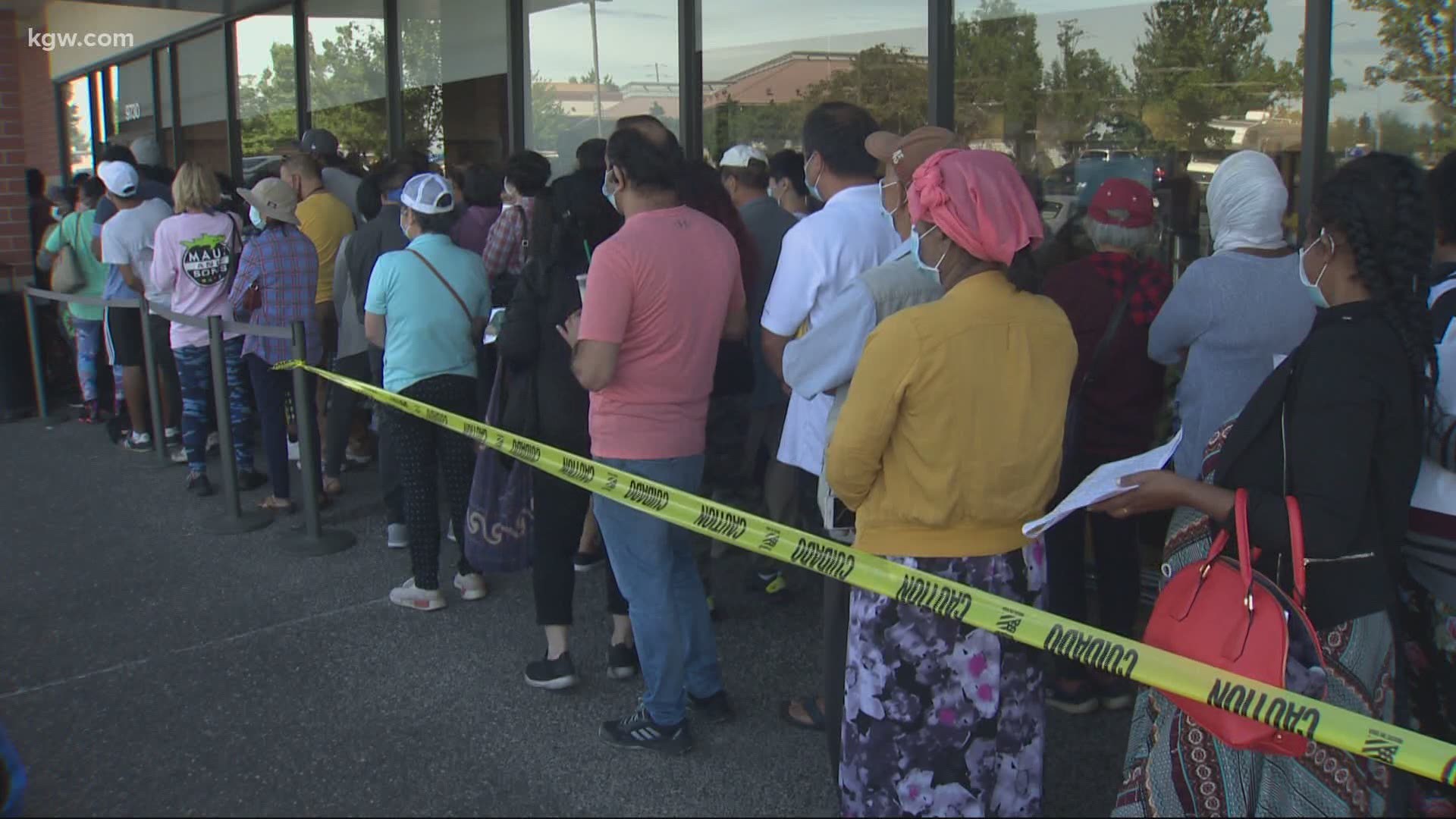PORTLAND, Ore. — UPDATE: State officials reported Friday morning that all 70,000 payments of the one-time $500 relief checks have been distributed or dedicated to Oregonians in need.
State officials said 62% of the checks handed out over the past two days were outside the Portland metro area.
The program will start winding down Friday. Participating banks and credit unions will be given a final funding allotment cap for the day and won't accept new walk-in applications once they've reached that cap.
"Previously scheduled appointments will continue through the end of the month, but new appointments will not be made," state officials said in a press release.
A spokesperson for OnPoint Community Credit Union said people should no longer visit OnPoint branches looking for the checks.
"The State of Oregon has informed us that its Emergency Checks program is closed, because all $35 million has been allocated," said Tory McVay, senior vice president and chief retail officer of OnPoint Community Credit Union. "Accordingly, we will no longer be accepting applications and individuals should not visit OnPoint branches seeking to access the state’s Emergency Checks program."
McVay said that if Congress and the state set aside more relief funds, they'll be ready to help again. He reminded Oregonians in need that they can find help with rent, utilities and food by calling the state's 2-1-1 hotline.
ORIGINAL STORY: For the second straight day lines were long, very long, outside financial institutions across Oregon. People were looking to get their hands on $500 emergency relief checks.
Thursday afternoon, state officials said more than 33,000 payments, totaling more than $16 million, have been sent out in Oregon. That's nearly half the amount of the $35 million set aside for these payments, gone in just two days.
State officials also said that because some participating banks and credit unions won't be open on the weekends, there will be no checks handed out on Saturday or Sunday. See the schedule here
Cindy Barber, a 59-year-old woman with lupus, is at her breaking point. She hasn't been able to get one of the checks yet and said the $500 would mean a lot.
"It's everything to me," Barber said. "It's my energy bill, rent. It's my self-esteem."
Over the past 24 hours, Barber has stood in line outside two OnPoint Community Credit Unions. She was cut off at both. She has even tried to apply for the emergency funds online, but to no avail.
"I feel helpless because I can't help myself," she said.
Frustration is mounting and not just for Barber.
KGW has learned of hostile, and sometimes violent, crowds outside a credit union in Troutdale. The same thing in Southwest Portland where officers took several people into custody.
"The fact is we're trying to keep people safe," said Tory McVay of OnPoint Community Credit Union. "It's difficult to ensure that happens."
McVay acknowledges the angst, but urges patience.
"Be safe," he said. "Nobody wants to wait in lines. We need to be safe in those lines. Be patient. We're working hard to get this money into the community."
Barber is not sure patience is the answer. She calls the state program aimed at helping those experiencing financial hardships because of COVID-19 ill conceived.
"Shut it down," she said. "Figure out something else. This is not working."
Late Thursday a representative with OnPoint Community Credit Union reached out to Barber in hopes of helping her navigate the system.
Program requirements
As a reminder, people are eligible for the program only if they meet all the following:
- Have earned $4,000 per month or less (pre-tax) prior to their income loss due to COVID-19
- Have not received all unemployment payments they are owed
- Be a current resident of Oregon and at least 18 years old
- Be able to prove their identity and that they are an in-state resident
- Attest they are experiencing severe financial hardship directly or indirectly because of Gov. Brown's Stay Home, Stay Lives executive orders

